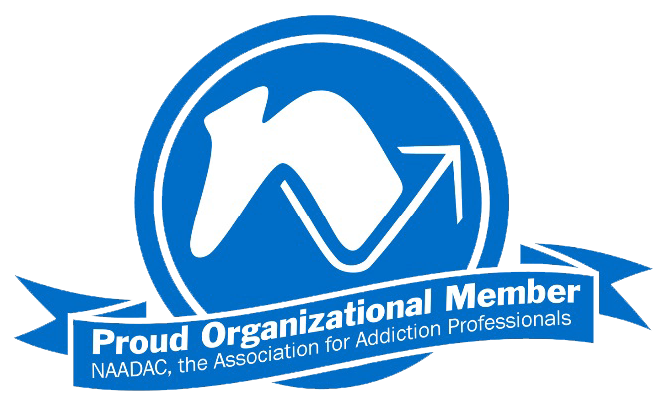This course provides information related to mental health in the context of low- and middle-income countries (LMIC), specifically, related risk factors, the burden of mental illness, the impact of substance abuse on mental health, and effective policies and interventions that can improve health. By the end of this course, students will be prepared to work as part of a team to plan interventions to reduce the impact of mental illness within a population.
The Global Health course is sponsored by the Annenberg Physician Training Program. Like all NextGenU.org courses, it is competency-based; competencies were developed in collaboration with global health and public health subject matter experts, and take into consideration the mapping of key competencies required by the public health wider workforce to contribute to public health priority by the NHS Health Scotland and the New Global Health Concentration Competencies for the Master of Public Health (MPH) Degree from the Association of Schools & Programs of Public Health.
The course uses learning resources from accredited, world-class organizations such as the U.S. National Institutes of Health, the Joint United Nations Programme on HIV/AIDS, and the World Health Organization. The course was designed by Hugo Rojas, MD, MSc; Margaret Niles, PhD, MEd, DipID ; Valeria Reynolds, MD, MPH; Juan Jose Pemintel, MD; and Pablo Baldiviezo, MD.
For publications on NextGenU.org’s courses’ efficacy, see “A Novel Integration of Online and Flipped Classroom Instructional Models in Public Health Higher Education,” (2014), BMC Medical Education, “Building Public Health Capacity through Online Global Learning,” (2018), Open Praxis,
or on NextGenU.org’s publication page. Subscribe to our newsletter to be notified of future updates, new courses, and to be part of our community.
There are four (4) modules to complete, which include:
-
Module 1: Introduction to Global Mental Health
- Module 2: Epidemiology of Mental Health Conditions
- Module 3: Substance Abuse and Mental Health
- Module 4: Evidence-Based Interventions
The completion time for this course is estimated to be 86 hours which includes 50 hours of didactics and curated resources and 36 hours of work participating in activities and quizzes to assist the student in the synthesis of the materials. This course
is equivalent to 2 credit hours.
Upon completion of the training (4 modules), participants will need to complete a Final Exam. Participants have up to three opportunities to take the final exam and achieve the required score of >=70%.
For students undergoing the Public Health U Masters’ Level Program, the course will have an extra 3000-word essay, with a completion time of 126 hours, 50 hours of didactics and curated resources and 76 hours of work. This course is equivalent to 3 credit
hours.
At the end of each lesson, there is a 20 minutes practice quiz of ten multiple-choice questions. At the end of the course, after you’ve completed each lesson, quiz, and learning activity, you’ll have access to a 1 hour and 20 minutes final exam of forty
multiple-choice questions, and a chance to evaluate this course. Once you’ve passed that last test, you will be able to download a certificate of completion from NextGenU.org and our course’s co-sponsoring organizations (listed above). We keep all
of your personal information confidential, never sell any of your information, and only use anonymized data for research purposes, and we are also happy to report your testing information and share your work with anyone (your school, employer, etc.)
at your request.
Engaging with this Course:
You may browse this course for free to learn for your personal enrichment; there are no requirements. To register for this course, it is required that learners have obtained a college-level/bachelor's degree.
To obtain a certificate, a learner must successfully complete:
-
all the reading requirements,
- all quizzes and pass with 80% having unlimited attempts,
- all case studies,
- activity simulation,
- the final exam with a minimum of 80% and a maximum of 3 attempts
- the self and course evaluation forms.
NextGenU.org is happy to provide your institution with
-
a link to and description of the course training, so they can see all its components, including the cosponsoring universities and other professional organization cosponsors;
- your grade on the final exam;
- your work products (e.g. case study activities), and any other required or optional shared materials that you produce and authorize to share with them;
- your evaluations -- course, and self-assessments;
- a copy of your certificate of completion, with the co-sponsoring universities and other organizations listed.
To obtain a degree, NextGenU.org co-sponsors degree programs with institutional partners. To obtain a full degree co-sponsored with NextGenU.org, registrants must be enrolled in a degree program as a student of a NextGenU.org institutional partner. If
you think that your institution might be interested in offering a degree with NextGenU.org contact us.
We hope that you will find this a rewarding learning experience, and we count on your assessment and feedback to help us improve this training for future students.
Here are the next steps to take the course for credit:
-
Complete the registration form.
- Take the pre-test.
- Begin the course with Module One. In each lesson, read the description, complete all required readings and any required activity, and take the corresponding quizzes.
This course meets nationally approved standards of education developed for the addiction/substance use disorders counseling profession. This course's participants are assured that the continuing education (CE) credits provided will be accepted toward national credentialing by the NAADAC Certification Commission for Addiction Professionals (NCC AP), as well as by many of the individual state licensing/certification bodies in the addiction and other helping professions.

*This course is sponsored in part by the Annenberg Physician Training Program: Abstinence-based Recovery from Addictive Disease.